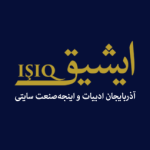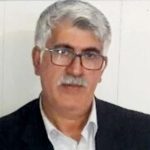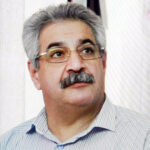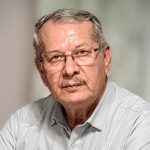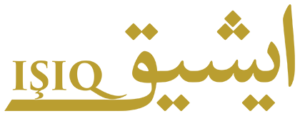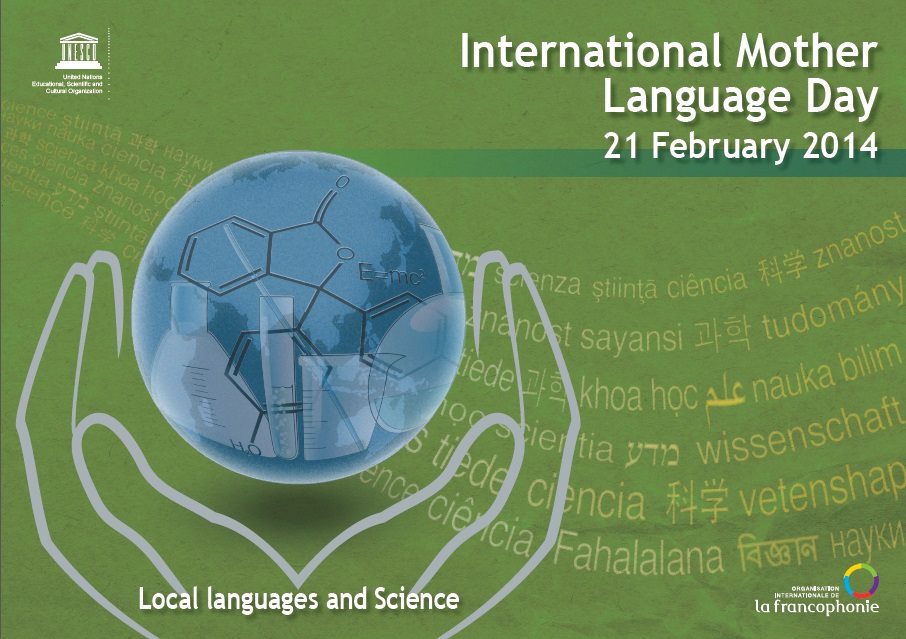 پیام مدیرکل یونسکو به مناسبت روز بینالمللی زبان مادری -۲۱ فوریه ۲۰۱۴
پیام مدیرکل یونسکو به مناسبت روز بینالمللی زبان مادری -۲۱ فوریه ۲۰۱۴
ایرینا بوکووا، مدیرکل یونسکو به مناسبت روز بینالمللی زبان مادری (۲۱ فوریه ۲۰۱۴) پیامی با عنوان”زبانهای محلی برای شهروندی جهانی: تمرکز بر علم” ارسال کرده است:
اکنون به مدت چهارده سال است که یونسکو و شرکایش روز بینالمللی زبان مادری را جشن میگیرند. ما با برگزاری فعالیتهای سازماندهیشده، کنفرانسها، کنسرتها و سمینارها در سراسر جهان، بر اهمیت تنوع زبانشناسی و چندزبانگی تاکید میکنیم.
حمایت و ترویج زبانهای مادری، عامل اصلی ایجاد شهروندی جهانی و تفاهم متقابل واقعی است. آشنایی و صحبت به بیش از یک زبان، باعث میشود که درک بهتری از گنجینه تعاملات فرهنگی در جهان پدید آید. به رسمیتشناختن زبانهای محلی، مردم را توانمند میکند تا صدایشان بهتر شنیده شود و نقش فعالی در سرنوشت جمعی خود ایفا کنند. به این دلیل است که یونسکو همه تلاش خود را بهکار میبرد تا از همزیستی هماهنگ ۷۰۰۰ زبان دنیا که مردم جهان به آن سخن می گویند حمایت کند.
امسال، تاکید ویژه ما بر “زبانهای محلی برای شهروندی جهانی: تمرکز بر علم” است که نشان میدهد چگونه زبانها دسترسی به دانش، انتقال و کثرت آن را تضمین میکند. برخلاف نظر عموم، زبانهای محلی به طور کامل قادرند که جدیدترین مطالب علمی را در زمینههای ریاضیات، فیزیک، فناوری و غیره منتقل کنند. به رسمیتشناختن این زبانها، به معنی گشودن دری روی حجم زیادی از مطالب علمی سنتی است که اغلب نادیده گرفته شده است، و نیز به معنی غنیساختن بنیان دانش ما است.
زبانهای محلی، رکن ایجاد بسیاری از زبانهایی است که در سراسر جهان در حوزه علم بهکار میرود. این زبانها همچنین در معرض بیشترین خطر قرار دارند. حذف زبانهای مادری، به معنی محرومکردن افراد آن زبان، از حق اساسی هر بشر برای کسب معرفت علمی است.
و اکنون نیز، ارتباط نزدیک مردم با یکدیگر در “دهکده جهانی”، فعالیت برای ایجاد تفاهم بین فرهنگی و گفتگو را حیاتیتر میکند. در دنیای امروز، استفاده از حداقل سه زبان، معمول است که عبارت است از: یک زبان محلی، یک زبان برای ارتباطات گستردهتر و یک زبان بینالمللی برای ایجاد ارتباط در سطوح بومی و جهانی. این تنوع زبانشناختی و فرهنگی میتواند بهترین شانس ما برای آینده باشد: برای خلاقیت، نوآوری و فراگیرشدن؛ و ما نباید این شانس را از بین ببریم.
روز بینالمللی زبان مادری، بیش از یک دهه است که بسیاری از نقشهایی را که زبانها در شکلبخشی به افکار، به معنای گسترده آن، و یک شهروند جهانی ایفا میکند، بهخوبی نمایان سازد؛ فضایی که در آن همگی ما ابزاری را برای سهیمشدن در زندگی و رویارویی با چالشهای جوامع خواهیم داشت. من در اینجا از همه کشورهای عضو یونسکو و سازمان بینالمللی فرانسهزبانان که در بزرگداشت این روز در سال ۲۰۱۴ مشارکت دارند، و نیز از فعالان جامعه مدنی، آموزشیاران، انجمنهای فرهنگی و رسانهها درخواست میکنم که از این تنوع زبانشناختی نوید بخش، در جهت برقراری صلح و توسعه پایدار به طور تمام و کمال بهرهمند شوند.
ترجمه: گروه آموزش
متن اصلی :
UNESCO Director-General’s Message
For 14 years now, UNESCO and its partners have celebrated International Mother Language Day. We have organized activities, conferences, concerts and seminars around the world to highlight the importance of linguistic diversity and multilingualism.
The protection and promotion of mother languages are keys to global citizenship and authentic mutual understanding. Understanding and speaking more than one language leads to a greater understanding of the wealth of cultural interactions in our world. Recognizing local languages enables more people to make their voices heard and take an active part in their collective fate. That is why UNESCO makes every effort to promote the harmonious coexistence of the 7,000 languages spoken by humanity.
This year, we place special emphasis on “Local languages for global citizenship: spotlight on science”, showing how languages ensure access to knowledge, its transmission and its plurality. Contrary to popular wisdom, local languages are perfectly capable of transmitting the most modern scientific knowledge in mathematics, physics, technology and so on. Recognizing these languages also means opening the door to a great deal of often overlooked traditional scientific knowledge to enrich our overall knowledge base.
Local languages constitute the majority of languages spoken across our world in the field of science. They are also the most endangered. Excluding languages means excluding those who speak them from their fundamental human right to scientific knowledge.
And yet, the rapprochement of peoples in the “global village” makes working towards intercultural understanding and dialogue ever more vital. In today’s world, the norm is to use at least three languages, including one local language, one language of wider communication and one international language to communicate at both the local and global levels. This linguistic and cultural diversity may be our best chance for the future: for creativity, innovation and inclusion. We must not squander it.
International Mother Language Day has contributed for more than a decade to highlighting the many roles played by languages in shaping minds, in the broadest sense, and building a global citizenship where we all have the means of contributing to the lives and challenges of societies. I call upon all the Member States of UNESCO, the International Organisation of La Francophonie – which is associated with the Day in 2014 – those active in civil society, educators, cultural associations and the media to make the most of this promise of linguistic diversity for peace and sustainable development.
منبع: http://www.irunesco.org/index.php?option=com_content&view=article&id=1658%3A———21–2014

